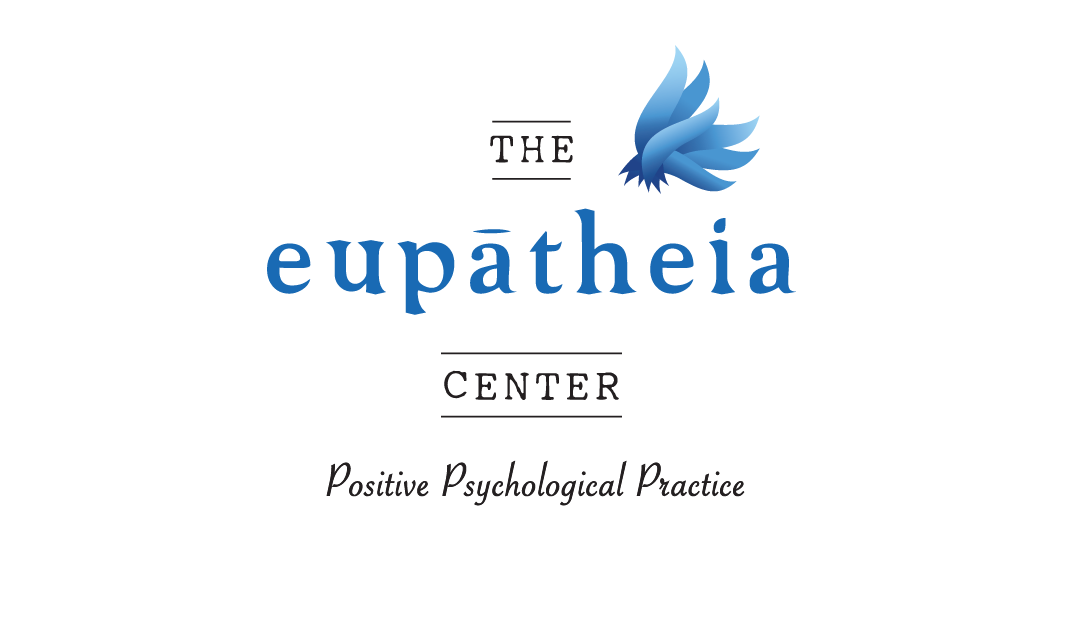“Pain is slight if opinion has added nothing to it;... in thinking it slight, you will make it slight. Everything depends on opinion; ambition, luxury, greed, hark back to opinion. It is according to opinion that we suffer.... So let us also win the way to victory in all our struggles, – for the reward is... virtue, steadfastness of soul, and a peace that is won for all time.”
The Eupatheia Center Is Inspired By Four Main Movements ~
Stoicism
Stoicism is an ancient Greek philosophy developed by Zeno Of Citium around 300 BC, which teaches the development of self-control, wisdom, courage, and inner strength as a way of overcoming destructive emotions and of cultivating serenity and harmony with one’s life. In many respects, Stoicism is not just an airy and detached cerebral pursuit but a very early form of effective and practical psychotherapy which highlighted the roles played by thought, belief, error, habit, and commitment in our adjustment to Fate and in our experience of happiness.
Positive Psychology
Positive Psychology is the empirical study of the strengths and character traits that enable people to flourish and obtain optimal functioning or ‘flow’. This research program, initiated by the research psychologist Mihaly Csikszentmihalyi and the cognitive psychologist and learning theorist Martin Seligman in 1990s, is based on the belief that human beings are naturally oriented to create meaningful and fulfilling lives, to seek out experiences of ‘flow,’ and to enhance the basic activities of their everyday life such as work, creative endeavors, play, and love.
Positive Realism
Positive Realism is the theory formulated by Italian philosopher Maurizio Ferraris that holds that we are embedded in a ‘real world’ that cannot be amended or altered at will and whose nature we must learn to properly fathom and accept in order to find our authentic place in the grand scheme of things. We encounter objects, circumstances, relationships, natural or historical events, and forms of life that may resist us or our attempts to control them. That is, the world is not the product of our minds or conceptual activity. While this may sound rather sobering initially, it also opens us to the implicit realization that the very world which resists us as something ‘unamendable’ in certain respects also is the world which provides us with knowledge and illumination, affordances, resources, opportunities, and experiences of real fulfillment and growth.
Interpersonal Psychotherapy
Interpersonal Psychotherapy (IPT) is a focused treatment for depression and other psychiatric disorders which emphasizes the role played by interpersonal factors as formative causes of dysfunction and psychiatric symptoms. IPT is founded on the idea that all psychological problems occur within an interpersonal context, and the treatment therefore examines the ways in which the development of a client’s symptoms connect to disturbances in his or her social circumstances. IPT was originally conceived to be short-term treatment (16-20 sessions maximum), but it has evolved to enable the clinician to extend treatment as warranted by the resurgence or recalcitrance of symptoms. It views psychological disorders as genuine medical problems, rather than as moral or personal failings, and it thus eliminates the sense of personal blame and guilt that people in emotional distress sometimes harbor in regard to their condition. The types of interpersonal difficulty it focuses on in treatment consist of one or more of the following: unresolved grief, role transitions, role disputes, and interpersonal deficits. IPT holds that interpersonal disturbances and their associated psychiatric syndrome manifestations have their roots in the client’s early attachment experiences, experiences of trauma or disconnection, as well as the amalgamated cognitive-affective-behavioral habits and tendencies shaped by those experiences. Successful psychotherapy involves the reduction of the client’s psychiatric symptoms to subclinical levels through observable improvements in his or her social support and interpersonal functioning. IPT grew out of the so-called Interpersonalist school of psychiatry of notable clinician-theorists from the early part of the last century, such as Harry Stack Sullivan, Karen Horney, Erich Fromm, and Frieda Fromm-Reichmann. It more recent decades IPT has been conceptually and empirically developed into a manualized and testable system of psychotherapy by Gerald Klerman, Myrna Weisman, Bruce Rounsaville, and Eve Chevron.







